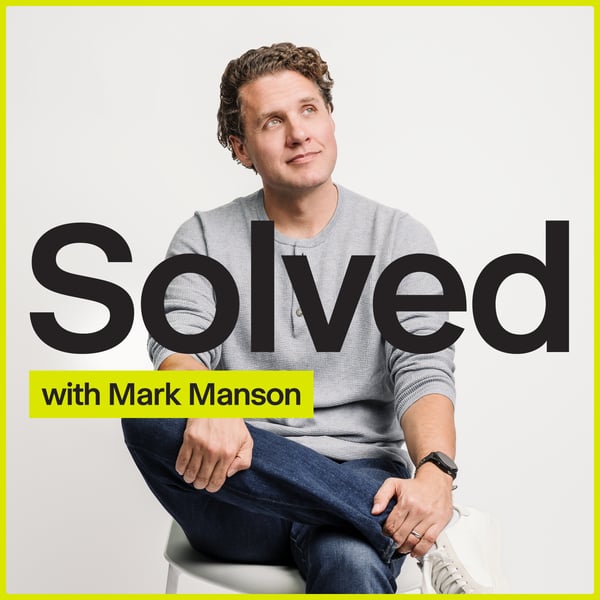Are Smartphones Really Ruining Our Lives… Or Is It Something Else? (ft. Jonathan Haidt)
The Subtle Art of Not Giving a F*ck Podcast
Mark Manson
4.8 • 3.8K Ratings
🗓️ 17 July 2024
⏱️ 90 minutes
🧾️ Download transcript
Summary
Is everything going to hell in a handcart because of smartphones and social media? In this episode, I sit down with NYU professor and bestselling author Jonathan Haidt to tackle this burning question.
Dr. Haidt makes a compelling case that our addiction to these devices is wreaking havoc on society, from mental health crises to political turmoil. But is it really all the smartphone’s fault? I'm not so sure it's quite that simple, so I wanted to dive deeper into the nuances.
We get into the nitty-gritty and I challenge some of Haidt’s claims, exploring questions like, why do these issues seem to hit the English-speaking world the hardest? Is this another moral panic, or is this time really different? We also discuss the differences in how smartphones affect various demographics and cultures, and why understanding these distinctions is crucial. Plus, we explore Jonathan’s practical and highly sensible recommendations for parents, educators, and policymakers.
Whether you’re a skeptic or a die-hard believer, this episode will make you rethink your relationship with the technology in our pockets.
Let's do this.
Start your new morning ritual & get up to 43% off your @MUDWTR by going to mudwtr.com/IDGAF! #mudwtrpod
Get 10% off your first month of therapy at BetterHelp.com/IDGAF
Transcript
Click on a timestamp to play from that location
| 0:00.0 | It is the question of our time is it all the smartphone's fault. It's the question that everybody seems to be asking whether it's the mental health crisis the political crises or just seemingly everything |
| 0:15.0 | being driven by our obsession and addiction to the devices in our pockets. |
| 0:20.0 | NYU professor and best-selling author Jonathan Hite argues, |
| 0:23.4 | yes, it is the smartphone's fault. |
| 0:25.9 | He believes there's a direct correlation between smartphones, |
| 0:28.6 | social media news feeds, front-facing cameras, |
| 0:31.0 | and pretty much everything going wrong in society at the same time. |
| 0:35.6 | His new book is chock full of data and charts supporting this claim and he particularly |
| 0:39.8 | focuses on the mental health crisis among young people. |
| 0:43.4 | Now, my personal belief is, I think it's complicated. |
| 0:47.2 | I don't think it's as simple as smartphones equal bad. |
| 0:51.0 | Smartphones ruin kids. As somebody who's very familiar with the data on the subject, |
| 0:55.1 | the story is very complex and there's a lot of nuance to it. So in today's episode, I challenge |
| 0:59.6 | Dr. Hyde on some of his claims and we get into the nitty gritty of the issue. |
| 1:03.8 | We look at the research and we ask ourselves, why doesn't some of this make sense? |
| 1:09.0 | Now he's been on pretty much every podcast under the sun this year talking about this subject so I really |
| 1:13.9 | wanted to try to take this conversation in a different direction. Some of the things |
| 1:17.6 | that we cover include if it is the phone's fault why aren't we seen |
| 1:21.9 | mental health crises in every other part of the world? Why does this seem to be limited to the English speaking world? |
| 1:28.5 | Also, is this just another moral panic? I mean, I remember when I was a kid people were freaking out about |
| 1:34.7 | cable TV and violent video games and the corruption of the morality of our youth and |
| 1:40.0 | how we're all gonna be drug addicts shooting each other on the streets. |
... |
Please login to see the full transcript.
Disclaimer: The podcast and artwork embedded on this page are from Mark Manson, and are the property of its owner and not affiliated with or endorsed by Tapesearch.
Generated transcripts are the property of Mark Manson and are distributed freely under the Fair Use doctrine. Transcripts generated by Tapesearch are not guaranteed to be accurate.
Copyright © Tapesearch 2025.

